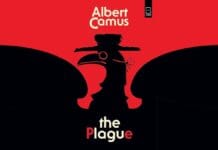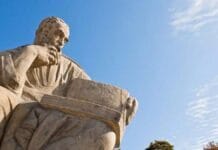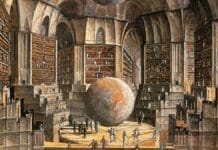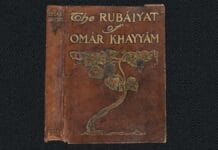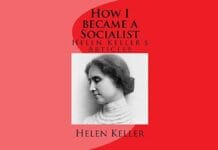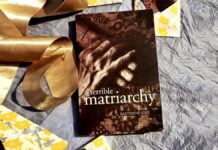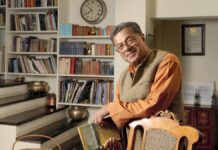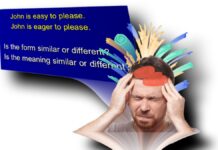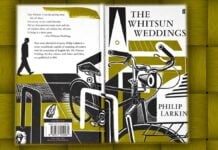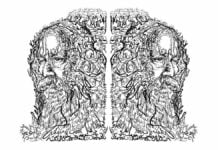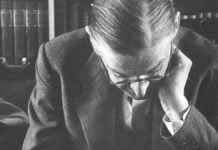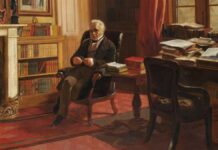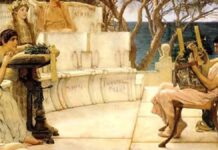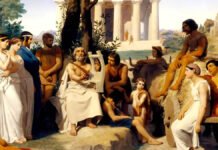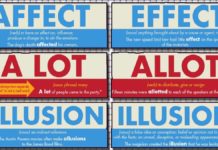The world’s literary classics form a mosaic of humanity’s most profound expressions, encompassing ancient epics, philosophical novels, and powerful dramas illuminating universal truths and individual struggles. They offer a timeless exploration of human experience, cultural values, and the fundamental questions of life. Each literary tradition has produced masterpieces influencing literature, philosophy, and art.
World classics form a rich tapestry of cultural heritage, capturing the essence of human experiences across history. In Greek and Roman literature, Homer’s epics Iliad and Odyssey portray heroism, fate, and resilience, setting a foundation for Western storytelling. Virgil’s Aeneid combines myth with Roman ideals of duty and destiny, glorifying Rome’s origins. Greek tragedians such as Aeschylus, Sophocles, and Euripides delve into the complexities of fate, justice, and emotion, with works like Oresteia, Oedipus Rex, and Medea posing enduring questions about morality and human nature. Aristophanes, in Lysistrata, uses comedy to critique war and gender dynamics, while Nikos Kazantzakis’s Zorba the Greek brings a modern, existential perspective, celebrating the zest for life and the balance between reason and passion.
From Italy, Dante’s Divine Comedy offers a journey through Hell, Purgatory, and Paradise, reflecting both religious and philosophical dimensions of the human condition. Boccaccio’s Decameron brings stories of wit, humour, and resilience in the face of adversity, while Renaissance epics like Ariosto’s Orlando Furioso and Tasso’s Jerusalem Delivered explore chivalry and faith in the context of romance and conflict. In more recent times, writers like Italo Calvino in Invisible Cities use postmodern narrative to explore imagination and memory, while Umberto Eco’s The Name of the Rose blends medieval mystery with philosophical depth, embodying the Italian literary tradition’s ongoing evolution.
German and Russian literature have also shaped world classics profoundly, with Goethe’s Faust reflecting themes of ambition, spirituality, and redemption and Dostoevsky’s Crime and Punishment probing the human psyche and morality. Tolstoy’s War and Peace and Mann’s The Magic Mountain encompass entire societies, intertwining individual lives with historical events. Meanwhile, French writers like Zola in Germinal address social injustice, Sartre’s Nausea explores existential questions, and Proust’s In Search of Lost Time contemplates memory and the passage of time. Collectively, these works traverse diverse themes of love, duty, ambition, and freedom, offering readers insights into humanity’s most profound struggles and joys.
Greek and Roman Classics
Homer
The foundational epic poems, Iliad and Odyssey, encapsulate Greek values, mythology, and heroism. Iliad recounts the events of the Trojan War, focusing on themes of honour, wrath, and fate, while Odyssey follows Odysseus’s journey home, exploring themes of perseverance and cunning. Homer’s epics have defined the archetypes of heroism and human resilience in Western literature. These poems are the cornerstones of Greek literature, exploring themes of heroism, fate, and the human struggle through the tales of Achilles and Odysseus.
Virgil
In response to Homer, Virgil’s Aeneid combines myth and Roman values to tell the story of Aeneas, who escapes Troy’s fall and travels to Italy, fulfilling a destiny to establish Rome. It celebrates Roman virtues like duty, loyalty, and sacrifice, casting Aeneas as a model for future generations and solidifying Rome’s cultural foundation. Rome’s national epic glorifies Rome’s origins and ideals, following Aeneas’s journey and highlighting Roman virtues of duty, resilience, and divine destiny.
Aeschylus
Aeschylus is considered the father of tragedy. His trilogy, Oresteia, explores justice, revenge, and the divine law through the tragic tale of the House of Atreus. His work portrays the moral struggles of his characters. It reflects the transition from personal vendetta to a legal justice system in Greek society, making Aeschylus a pioneer in developing Western tragedy.
Sophocles
Known for its complex exploration of fate, free will, and self-knowledge, Oedipus Rex follows King Oedipus as he unwittingly fulfils a prophecy of patricide and incest. Sophocles’ psychological depth and tragic irony make this play a cornerstone of Western thought on destiny and human limitation. This tragedy of fate and self-discovery remains influential, examining questions of free will, fate, and the consequences of human pride.
Euripides
Euripides’s Medea is a psychologically rich play about a woman’s rage and revenge against her unfaithful husband. Euripides’s controversial focus on the inner lives of his characters, especially women, challenges social norms and sheds light on themes of betrayal, revenge, and the complexity of human emotion. In this play, Euripides challenges contemporary views on gender and morality.
Aristophanes
In the comedy Lysistrata, Aristophanes uses humour to critique war and male dominance. The women of Greece withhold intimacy from their husbands to end the Peloponnesian War, revealing Aristophanes’ talent for social satire and his scepticism of political institutions. Aristophanes’ comedic genius shines in Lysistrata, through a plot where women withhold intimacy to force peace.
Nikos Kazantzakis
Kazantzakis’s modern classic Zorba the Greek explores the duality between intellectual life and the joys of physical existence. Through the friendship of the narrator and the vivacious Zorba, it delves into themes of freedom, vitality, and the pursuit of meaning.
Italian Classics
Dante Alighieri
Dante’s epic poem Divine Comedy depicts the journey of the soul from Hell to Paradise, exploring sin, redemption, and divine love. Dante’s work is a personal journey and an allegory of the soul’s ascent towards God, representing medieval theology and Renaissance humanism.
Giovanni Boccaccio
In Decameron, through 100 tales told by ten young people fleeing the plague, Boccaccio creates a vivid portrait of human nature. The stories encompass humour, tragedy, and wit, reflecting society’s resilience and highlighting various social dynamics of the 14th century.
Torquato Tasso
An epic recounting the First Crusade, Tasso’s work Jerusalem Delivered glorifies Christian knights as they battle to reclaim Jerusalem. Blending romance and heroism, it reflects the ideals of the Counter-Reformation, with themes of piety, duty, and cultural conflict.
Ludovico Ariosto
The Renaissance epic Orlando Furioso humorously critiques chivalric ideals while exploring the boundaries of love, duty, and heroism. Ariosto’s playful narrative combines romance and fantasy, making it both a tribute and a satire of knighthood.
Italo Calvino
In Invisible Cities, Calvino delves into the nature of human desire, memory, and urban life through Marco Polo’s imaginary descriptions of cities. His postmodern narrative presents each city as a symbol of the human mind, blending philosophical ideas with poetic storytelling.
Umberto Eco
A blend of medieval mystery and philosophical inquiry, the novel The Name of the Rose follows a monk investigating murders in a monastery. Eco examines the tension between faith and reason, illustrating the power of knowledge and its consequences.
German Classics
Johann Wolfgang von Goethe
Goethe’s Faust explores ambition, love, and redemption through the story of Faust, who makes a pact with the devil. His journey reflects human nature’s duality and explores enlightenment values, Romanticism, and the quest for spiritual fulfilment.
Hermann Hesse
Hesse’s novel Siddhartha follows the spiritual journey of Siddhartha, a man searching for enlightenment. Through Eastern philosophy, it presents themes of self-discovery and the cyclic nature of life, illustrating Hesse’s own quest for spiritual meaning.
Günter Grass
In The Tin Drum, Grass critiques German society and its collective guilt after World War II through the life of Oskar, a boy who refuses to grow. His use of magical realism captures the absurdity and horror of history, making it a post-war classic of German literature.
Thomas Mann
The Magic Mountain, a novel set in a Swiss sanatorium, reflects early 20th-century intellectual currents, such as the clash between rationalism and spiritualism. Mann uses the setting to delve into ideas about time, illness, and Europe’s political instability on the eve of World War I.
Russian Classics
Alexander Pushkin
In Eugene Onegin, a novel in verse, Pushkin presents a detached, melancholic protagonist symbolic of the “superfluous man” in Russian literature. Themes of love, fate, and societal expectation make it a foundational work of Russian realism.
Nikolai Gogol
Gogol’s satirical novel Dead Souls critiques Russian bureaucracy and societal greed through its protagonist, Chichikov’s morally dubious schemes. Chichikov exploits the system for personal gain, creating a vivid picture of 19th-century Russia. His surreal, dark humour and incisive social commentary have shaped Russian literature’s distinct voice.
Fyodor Dostoevsky
In Crime and Punishment, Dostoevsky examines guilt, morality, and redemption through Raskolnikov, a student who justifies murder. His psychological insight and exploration of existential themes make this novel a profound study of conscience and human nature.
Leo Tolstoy
Tolstoy’s sweeping epic War and Peace depicts the Napoleonic Wars and their impact on Russian society. Through the lives of various characters, Tolstoy explores history, fate, and individual agency, making it one of literature’s most comprehensive explorations of war and peace.
Anton Chekhov
Chekhov’s play The Cherry Orchard captures the fading of an old aristocratic Russia with subtle characterisation and naturalistic dialogue. His examination of social change and family dynamics has influenced modern drama profoundly.
Maxim Gorky
In The Lower Depths, Gorky’s portrayal of impoverished Russian outcasts highlights the harsh realities of their lives. His social realism and empathy for the marginalised shaped Russian literature’s focus on the working class and the downtrodden.
French Classics
Jean-Paul Sartre
Sartre’s novel Nausea exemplifies existentialist themes of freedom, alienation, and the search for meaning in a chaotic world. Through the protagonist’s philosophical crisis, Sartre reflects on the essence of human existence.
Emile Zola
Zola’s novel Germinal, about the coal miners’ strike in northern France, is a powerful critique of the exploitation of the working class. His commitment to realism and his exploration of social injustice highlight the plight of the underprivileged and the forces shaping society.
Marcel Proust
Proust’s seven-part novel In Search of Lost Time explores memory, time, and art’s power to capture fleeting moments. Through the narrator’s introspective journey, Proust delves into themes of love, jealousy, and the nature of experience.
Each of these authors has contributed a masterpiece transcending its time and place, illuminating universal human experiences and providing insight into cultural, political, and social dynamics. From Homer’s ancient epics to Proust’s introspective modernism, each work provides a window into its author’s unique worldview, offering timeless insights that continue to resonate with readers around the globe. They have shaped literature, philosophy, and culture, capturing the essence of human experience across different epochs and societies. Their works continue to inspire reflection on identity, morality, love, and the search for meaning, forming a lasting legacy in world literature that shapes our understanding of what it means to be human.

